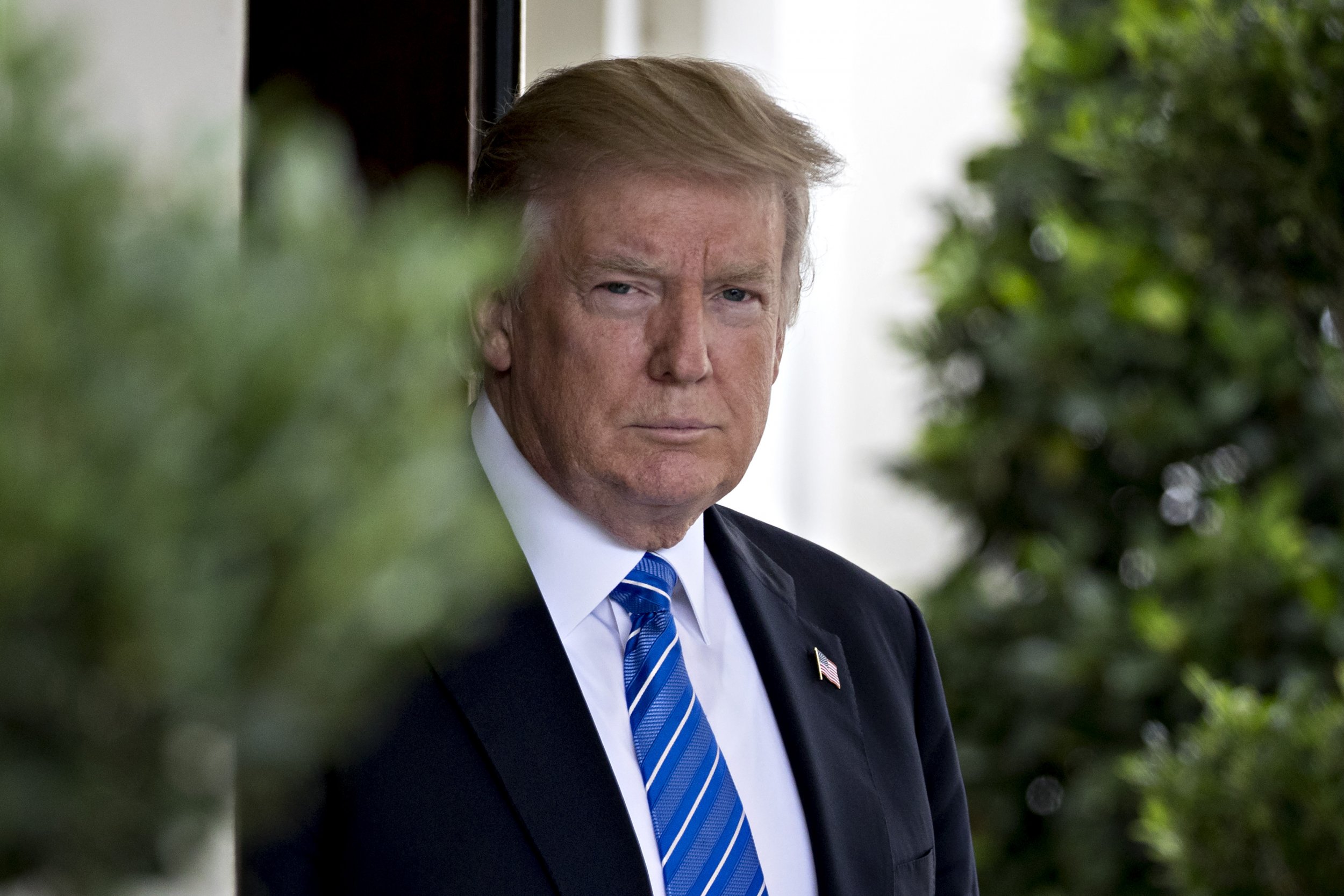
A member of President Donald Trump's Advisory Commission on Election Integrity was pushing fake news before its second meeting was even able to kick off on Tuesday afternoon.
In an op-ed published by Breitbart just ahead of the meeting, Kris Kobach, the commission's vice chairman, again asserted a debunked claim that more than 5,000 people in New Hampshire cast illegal votes during last year's election. His suggestion that there was rampant voter fraud in the region was swiftly rebuked by the state's secretary of state, Bill Gardner, who said New Hampshire's election results were "real and valid."
Related: Here's how Donald Trump could actually be impeached
By the end of the day, though, it became clear that several of the group's members have a common goal: to publicize every known case of voter fraud from before and during the 2016 election and to clamp down on anything that made them possible ahead of the 2020 vote.
Most of the fraud commission's evidence of fraud seems to come from the commissioners themselves. Hmm.
— Wendy Weiser (@WendyRWeiser) September 12, 2017
Ken Block, a researcher for ex–White House chief strategist Stephen Bannon's watchdog group, the Government Accountability Institute, shared with the commission a study he conducted that claims there were nearly 40,000 instances of double-voting in last year's election. His report, criticized by leading election security experts as being "rife with inaccuracies," was a primary topic of conversation among the commission members Tuesday, after Block spoke on a panel titled "Current Election Integrity Issues Affecting Public Confidence."
The facts and figures presented at Tuesday's meeting by Kobach, Block and others were rejected by viewers like Wendy Weiser, director of the voting rights research group Brennan Center, who tweeted Tuesday, "Most of the fraud commission's evidence of fraud seems to come from the commissioners themselves. Hmm."
Rebuttals also came from within the commission itself, as a number of Democrats suggested the most important issue affecting elections nationwide involved voter suppression, not voter fraud.
The Election Integrity Commission "should be expanding the rights of our citizens to vote, instead of arguably looking for ways to keep people from voting," Alan L. King, an Alabama probate judge, wrote in a scathing open letter. "Some parts of our electorate wish to beat their chests on so-called 'voter fraud,' and there may be some isolated instances of irregularities, but, I would venture to say, thousands upon thousands more people are stricken from voter rolls without justifiable cause or have their vote suppressed."
The commission could be laying the groundwork for new restrictions on voters ahead of the 2018 midterm and 2020 presidential elections, as it focuses on voting logistics in states like New Hampshire, where Trump was defeated by former Secretary of State Hillary Clinton. The state legally allows registered voters to cast ballots after identifying themselves with out-of-state licenses—"proof," Kobach says, that the election results were skewed by illegal votes against Trump.
The election commission isn't the only federally sanctioned group putting slight issues under a magnifying lens. Trump unveiled the Victims of Immigration Crime Engagement Office during his first address to Congress. The department, housed under the Immigration and Customs Enforcement agency, regularly releases news about crimes committed by immigrants in order to raise awareness of the issue, despite decades of nonpartisan research indicating the demographic is far less likely to break the law than American-born citizens.
Still, the Commission on Election Integrity is led by two Republican lawmakers and includes a handful of "extremists who contend that election fraud is rampant," The New York Times' Michael Wines wrote Tuesday. Their ability to bring the most polarizing, misleading and often disputed claims about voting to the front of the national conversation remains incredibly powerful—even if they're shot down time and time again.
Uncommon Knowledge
Newsweek is committed to challenging conventional wisdom and finding connections in the search for common ground.
Newsweek is committed to challenging conventional wisdom and finding connections in the search for common ground.
About the writer
Chris Riotta is a reporter from New York and is a Master's candidate in Journalism at Columbia University. He has ... Read more
To read how Newsweek uses AI as a newsroom tool, Click here.








